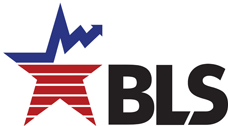Is Your Job at Risk in 2025? 7 Expert Moves to Stay Secure in the Age of AI, Layoffs & Global Competition
Worried about layoffs? With UK vacancies falling, US job cuts rising, and AI reshaping work, here are 7 expert tips to protect your career and stay resilient in 2025.
Is Your Job at Risk? Here’s What You Can Do About It
Let’s be real—job security feels more fragile than ever. In 2025 alone, we’ve seen layoffs at eBay, Riot Games, and the Los Angeles Times.
In the UK, job vacancies have now fallen for the 37th month in a row, while in the US, companies announced over 62,000 job cuts in July. That’s a lot of people suddenly wondering how to pay the bills and what comes next.
And it’s not just the economy. AI tools are reshaping roles, businesses are cutting costs, and more jobs are being moved abroad to cheaper talent hubs. Add it all up, and the competition for each available role is getting tougher.
The scary part? You can’t control most of this.
The good part? You can control how ready you are.
Here are 7 smart moves to protect yourself if you’re worried about layoffs—or if you’ve already been affected.

1. Build a Financial Safety Net
Even a small emergency fund helps. Aim for 3–6 months of expenses if you can, but don’t panic if that feels out of reach. Start small—every bit you save buys you breathing room. If you’re overpaying on debt, consider slowing that down temporarily so you can free up cash.
2. Keep Your CV and LinkedIn Fresh
Most people only update their CV when they’ve already lost their job—that’s too late. Keep it current now. Highlight achievements, not just duties, and make sure your LinkedIn headline clearly shows what you do. Bonus tip: Tailor your CV for the jobs you want, not just the one you have.
UK: Redundancy rate is 3.6 per 1,000 employees.

3. Strengthen Your Network
Job boards aren’t enough—most opportunities come through people. Reach out to old colleagues, mentors, or industry contacts. You don’t have to say, “I’m worried I’ll lose my job.” Instead, share updates about your skills or ask for advice. Networking works best when it doesn’t feel desperate.
4. Upskill and Stay Relevant
AI isn’t killing every job, but it is changing them. The safest workers are those who work with AI, not against it. Pick up micro-skills that employers are looking for: data analysis, workflow automation, AI-assisted tools, or industry-specific certifications. Platforms like Coursera, Udemy, and edX offer plenty of affordable (even free) options.
5. Understand the Bigger Picture
Why are layoffs happening?
- AI & automation: routine jobs are shrinking.
- Cost-cutting: firms protect profit margins by trimming staff.
- Hiring abroad: more companies are moving roles to cheaper markets.
- Tough competition: fewer vacancies mean more people chasing each job.
Knowing this helps you target roles that are harder to replace—jobs tied to revenue, regulation, or relationships.
6. Protect Your Mental Health
Job uncertainty is exhausting. If you’ve been laid off, it can feel like a personal failure (it’s not). Keep a routine: wake up at the same time, block time for applications, exercise, and do activities you enjoy. Stress-baking, gardening, sports—whatever helps you stay grounded. Looking after your mind makes you more resilient in the job hunt.
US: Over 62,000 announced job cuts in July 2025; the biggest spike was 275,000 in March 2025.

7. Have a “Plan B” Ready
Sometimes, the best option is a temporary role, freelancing, or part-time work while you regroup. Employers value resilience—it shows grit and adaptability. At the same time, apply for any benefits you’re entitled to (Jobseeker’s Allowance in the UK, unemployment in the US). That safety net exists for a reason—use it.
Final Take Away
The world of work is shifting fast. AI, cost-cutting, and global competition mean no job is completely safe. But here’s the truth: people who prepare—by saving, networking, learning, and protecting their wellbeing—bounce back quicker.
You can’t control whether your company makes cuts.
But you can control whether you’re ready for what’s next.









